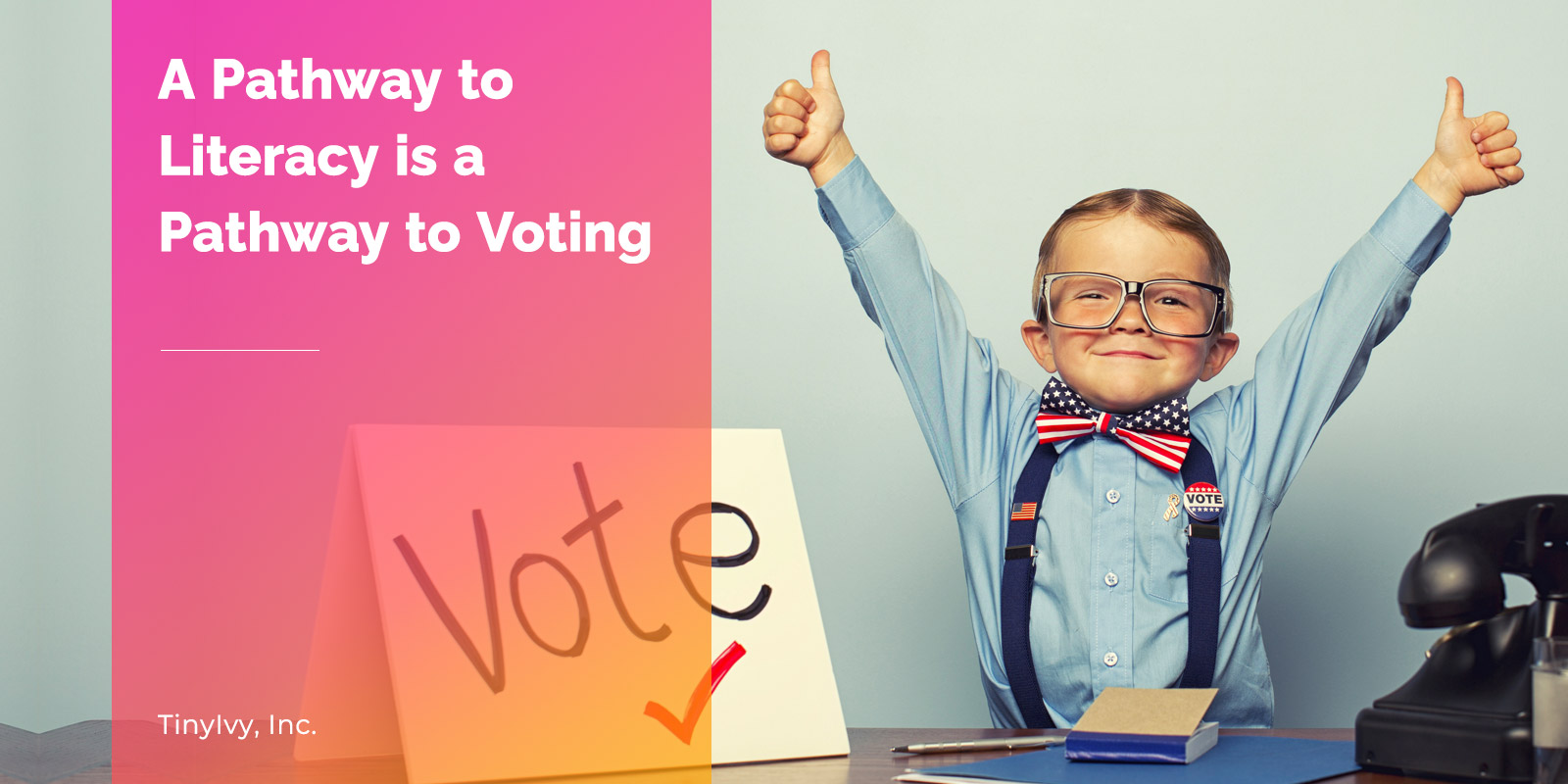We're taking a few minutes as we wait for the exit polls and early votes and mail in ballots to start coming in to remind everyone about the critical first step of democracy: reading.
Election day is upon us, and the “get out the vote” campaign is everywhere: the news, social media, billboards, sidewalks, t-shirts and more. These efforts coalesce in the neighborhoods with the lowest historical turnout, which also, inevitably, happen to be the same communities that struggle from chronic illiteracy.
Around 43 million Americans read and write below a third grade reading level. The inability to read can cause frustration, intimidation and low voter turnout. Not only that, people can feel real shame around their inability to read and the incapability of comprehending any legislation that is on the ballot. For the science minded of our readers, note that the causality of this connection was in fact proven in this study.
Our country has established legal pathways to seek help according to U.S. Code 10508. This nice little rule makes it a requirement to offer assistance to those who need it based on blindness, the inability to read or write and other disabilities. The question is how much does humiliation and embarrassment stop someone from seeking that help?
As people continue to blame themselves for their lack of literacy, our system continues to fail our children who will one day be old enough to vote. But, will they be able to read?
The work we do is designed to support all readers, no matter what their literacy background is, no matter how often books are read to them at home, and no matter what their school placement is- public or private.
Like voting, where the pressure is on the voter to decode the political jargon of legislation and not on the politicians to be transparent in their language, we believe the English language should be transparent and clear so that kids can make that sound-letter correspondence right away.
Too often we put emphasis on the student’s ability to decode an extremely difficult language, or on the teachers to figure out a way to help struggling readers who just aren’t getting it. But what about English itself? Let’s empower our children by giving them the tools to unlock the sounds of letters in a straightforward and easy way. They deserve it.
Just like they deserve the right to vote.


